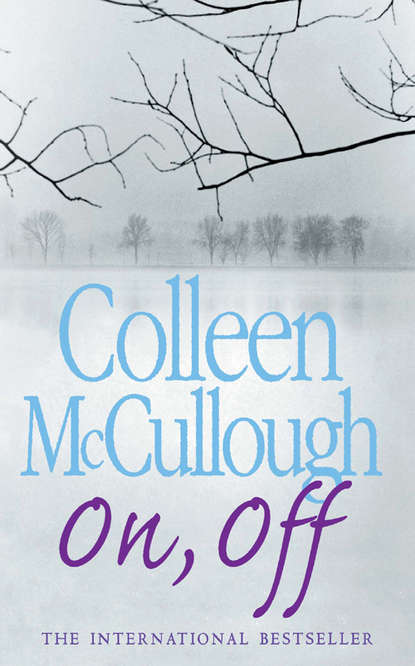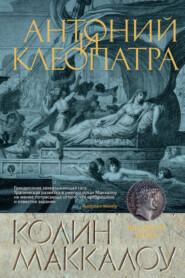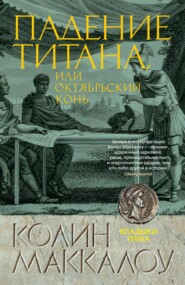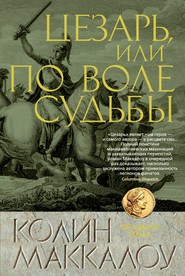По всем вопросам обращайтесь на: info@litportal.ru
(©) 2003-2024.
✖
On, Off
Автор
Год написания книги
2018
Настройки чтения
Размер шрифта
Высота строк
Поля
“I see you take good care of them.”
“One cat,” said Dr. Finch patiently, “represents an investment of at least twenty thousand dollars. He has to come with papers that satisfy the various authorities, including the A.S.P.C.A. and the Humane Society. Then there is the cost of his upkeep, which has to be first class or he doesn’t survive. I need healthy cats. Therefore a death is unwelcome, not to say exasperating.”
Carmine moved on to the third researcher, Dr. Nur Chandra.
Who took his breath away. Chandra’s features were cast in a patrician mold, his lashes were so long and thick that they seemed false, his brows were finely arched and his skin the color of old ivory. His wavy black hair was cut short, in keeping with his European clothes; except that a master cut the hair, and the clothes were cashmere, vicuna, silk. A buried memory unearthed itself: this man and his wife were known as the handsomest couple in all of Chubb. Ah, he had Chandra now! The son of some maharajah, rolling in riches, married to the daughter of another Indian potentate. They lived on ten acres just inside the Holloman County line, together with an army of servants and several children who were tutored at home. Apparently the swanky Dormer Day School was not swanky enough. Or might give the kids too many American ideas? They enjoyed diplomatic immunity, quite how, Carmine didn’t know. That meant kid gloves, and pray he wasn’t the one!
“My poor Jimmy,” said Dr. Chandra, voice sympathetic but not oozing the tenderness Cecil’s did when speaking of Jimmy.
“Give me Jimmy’s story, please, Doctor,” Carmine said, gaze riveted on another monkey, its legs crossed nonchalantly, seated in a complicated plexiglass chair inside an enormous box with its door open. The beast was minus its tennis ball hat, revealing a pink mass of dental cement in which was embedded a bright green female connector. A bright green male plug had been inserted into it, and a thick, twisted cable of wires in many colors ran to a panel on the box wall. Presumably the panel connected the monkey to a lot of electronic equipment in 19-inch racks around the box.
“Cecil called me yesterday to tell me he’d found Jimmy dead when he went in to see the monkeys after lunch,” the researcher said in the most pearshaped English accent Carmine had ever heard. Nothing in common with Miss Dupre’s or Don Hunter’s accents, different though they were from each other. Amazing that such a tiny country had so many accents. “I went downstairs to see for myself, and I swear to you, Lieutenant [another leftenant], that I deemed Jimmy dead. No pulse, no respiration, no heart sounds, no reflexes, both pupils dilated. Cecil asked me if I wished Dr. Schiller to perform an autopsy, but I declined. Jimmy hasn’t had his electrodes implanted for long enough to have been of any experimental value to me. But I told Cecil to leave him be, that I’d check again at five, and if he hadn’t changed, I’d pop him in the refrigerator myself. Which is what I did.”
“What about this guy?” Carmine asked, pointing at the monkey, which bore the same expression as Abe when dying for a cigarette.
“Eustace? Oh, he’s of immense value! Aren’t you, Eustace?”
The monkey transferred its gaze from Carmine to Dr. Chandra, then grinned ghoulishly. You are one arrogant bastard, Eustace, thought Carmine.
Chandra’s technician was a young man name Hank, who took Carmine to the O.R.
Sonia Liebman greeted him in the anteroom, describing herself as the O.R. technician. The anteroom was given over to shelves of stores to do with surgery; it also contained two autoclaves and a formidable looking safe.
“For my restricted drugs,” Mrs. Liebman said, indicating the safe. “Opiates, pentothal, potassium cyanide, a bunch of nasties.” She handed Carmine a pair of canvas bootees.
“Who knows the combination?” he asked, putting them on.
“I do, and it is not written down anywhere,” she said firmly. “If they have to carry me out feet first, they’ll have to bring in a safe cracker. Share a secret, and it’s no secret.”
The O.R. itself looked like any other operating room.
“I don’t operate under fully sterile conditions,” she said, leaning her rump on the operating table, which was an expanse of clean linen savers and had a curious apparatus mounted at one end, all aluminum sticks, frames, knobs geared down to Vernier scale. She herself was clad in a clean boiler suit—ironed—and canvas bootees. An attractive woman of about forty, he decided, slim and businesslike. Her dark hair was drawn back in a no-nonsense bun, her eyes were dark and intelligent, and her lovely hands were marred by nails cut very short.
“I thought an O.R. had to be sterile,” he said.
“Scrupulous cleanliness is far more important, Lieutenant. I’ve known O.R.s more sterile than a zapped fruit fly, but no one ever really cleaned them.”
“So you’re a neurosurgeon?”
“No, I’m a technician with a Master’s. Neurosurgery is a man’s field, and they give women neurosurgeons hell. But at the Hug I can do what I love to do without that kind of trauma. Due to the size of my patients, it’s very high powered neurosurgery. See that? My Zeiss operating microscope. They don’t have one in the Chubb neurosurgery O.R.s, not one,” said the lady with great satisfaction.
“You operate on what?”
“Monkeys for Dr. Chandra. Cats for him and Dr. Finch. Rats for the neurochemists upstairs, and cats for them too.”
“Do they die on the table often?”
Sonia Leibman looked outraged. “What do you think I am, ham-fisted? No! I sacrifice animals for the neurochemists, who don’t often work on live brains. Neurophysiologists work on live brains. That’s the main difference between the two disciplines to me.”
“Uh, what do you sacrifice, Mrs. Liebman?” Tread carefully Carmine, tread carefully!
“Rats in the main, but I do Sherringtonian decerebrations on cats too.”
“What’s that?” he asked, writing in his notebook, but not really wanting to know—more abstruse details coming up!
“Removal of a brain from the tentorium up under ether anesthesia. The moment I shell the brain out, I inject pentothal into the heart and wham! The animal’s dead. Instantaneous.”
“So you put fairly large animals into bags and take them to the refrigerator for disposal?”
“Yes, on decerebration days.”
“How often do these decerebration days happen?”
“It depends. If Dr. Ponsonby or Dr. Polonowski ask for cat forebrains, about every two weeks for a couple of months, at the rate of three to four cats on any one day. Dr. Satsuma doesn’t ask nearly as often—maybe once a year, six cats.”
“How big are these decerebrated cats?”
“Monsters. Males about twelve to fifteen pounds.”
Right, two floors down and two to go. Utilities, workshops and neurophysiology done. Now it’s up to see the office staff on the fourth floor, then down to the third and neurochemistry.
There were three medical typists, all with science degrees, and a filing clerk who had nothing more imposing than a high school diploma—how lonely she must feel! Vonnie, Dora and Margaret used big IBM golfball typewriters, and could type electroencephalography faster than a cop could type DUI. Nothing there; he left them to it, Denise the filing clerk sniffling and mopping her eyes as she peered into open drawers, the typists clattering like machine guns.
Dr. Charles Ponsonby was waiting for him at the elevator. He was, he said to Carmine as he escorted the visitor to his office, the same age as the Prof, forty-five, and filled in for the Prof when he was away. They’d gone to the Dormer Day School together, did their pre-med at Chubb together, then their medical degrees at Chubb. Both, Ponsonby explained gravely, were Connecticut Yankees back to the beginning. But after medical school their paths had diverged. Ponsonby had preferred to stay at Chubb to do his neurological residency, while Smith had gone to Johns Hopkins. Not that the separation had been a long one: Bob Smith came back to head up the Hug, and invited Ponsonby to join him there. That had been in 1950, when both were thirty years old.
Now why did you stay home? Carmine wondered, studying the chief of neurochemistry. A mediumsized man of medium height, Charles Ponsonby had brown hair streaked with grey, watery blue eyes above a pair of half glasses perched on a long, narrow nose, and the air of an absent-minded professor. His clothes were shabby and tweedy, his hair wisped about, and his socks, Carmine saw, were mismatched: navy on the right foot, grey on the left. All this might confirm that Ponsonby was an unadventurous man who saw no virtue in going farther afield than Holloman, yet something in those rheumy eyes said he might have ended a different kind of man had he too gone elsewhere after finishing his medical degree. An hypothesis based on gut instinct; something had kept Ponsonby at home, something concrete and compelling. Not a wife, because he had said, quite indifferently, that he was a lifelong bachelor.
Interesting too to discover the contrasts between their offices. Forbes’s had been awesomely neat with no room for plush furniture or wall hangings; books and papers everywhere, even the floor. Finch went in for potted plants and actually had a stunning orchid in bloom; his walls cascaded ferns. Chandra preferred the leather Chesterfield look, with leaded glass-paned book cabinets and a few exquisite Indian art works. And Dr. Charles Ponsonby lived tidily among gruesome artefacts like shrunken heads and death masks of people like Beethoven and Wagner; he also had four reproductions of famous paintings on his walls—Goya’s Cronus eating a child, two sections of Bosch’s Hell, and Munch’s screaming face.
“Do you like surrealist art?” Ponsonby asked with animation.
“I’m into oriental art myself, Doctor.”
“I’ve often thought, Lieutenant, that I mischose my calling. Psychiatry fascinates me, particularly psychopathia. Look at that shrunken head—what beliefs can provoke that? Or what visions my paintings?”
Carmine grinned. “No use asking me. I’m just a cop.” And you, he ended in a silent comment, are not my man. Too obvious.
Up here, he saw as Ponsonby conducted him through the labs, the equipment was more familiar: an atomic absorption unit, a mass spectrometer, a gas chromatograph, centrifuges large and small—the kind of apparatus Patrick had in his forensic lab, just newer and grander. Patrick had to scrape; here, they spent and spent.
From Ponsonby he learned more about the cat brains that were made into what Ponsonby called “brain soup” so naturally that it had no element of jocularity about it. They used rat brain soup too. And Dr. Polonowski was conducting some experiments on the giant axon of a lobster leg—not the big claws, the little legs. Those axons were huge! Polonowski’s technician, Marian, often had to call into the fish shop on her way to work to buy the four biggest lobsters in the tank.
“What happens to the lobsters afterward?”
“They are rostered between those who like lobster,” Ponsonby said, as if the question had no merit whatsoever when the answer was so patently clear. “Dr. Polonowski doesn’t do anything to the rest of the beast. It is very kind of him to rotate them, actually. They are his experimental animals, he could eat them all himself. But he takes his turn with the rest of us. Except for Dr. Forbes, who has gone vegetarian, and Dr. Finch, who is too orthodox to eat crustacea.”
“Tell me, Dr. Ponsonby, do people notice bags of dead animals? If you saw a big dead animal bag stuffed full and you did notice it, what would you think about it?”
Ponsonby’s face registered mild surprise. “I doubt I would think about it, Lieutenant, because I doubt I would notice it.”














